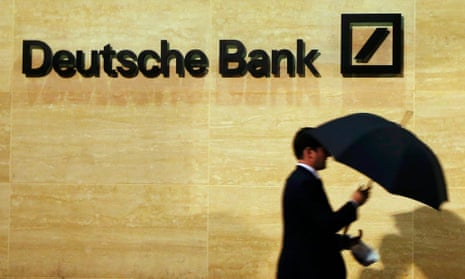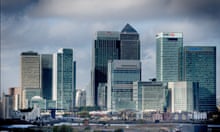What mild-mannered manipulators they were at Deutsche Bank. Most traders lobbied for dodgy interest rate submissions in terribly polite fashion. They addressed each other as “pal” or “old bean” or “mate” and generally said please and thank you. The American trader who urged a colleague “strap on a pair and jack up the 3M” was an outlier.
Politeness, of course, is beside the point. Indeed, the traders’ language illustrates how attempting to rig Libor and equivalent markets had become a humdrum activity at Deutsche. As the Financial Conduct Authority puts it, the culture was “deeply ingrained”.
Worse by far, though, was Deutsche’s cack-handed dealings with regulators when the scandal broke and documents were demanded. Deutsche officials sometimes misled investigators and the bank’s record-keeping was a shambles. Some 482 tapes of telephone calls were destroyed by mistake and the bank took two years to produce other recordings.
Thus Deutsche’s fines are deservedly bigger than other banks’. It will pay a total of $2.5bn, including £227m to the FCA. For good measure, Benjamin Lawsky at New York state’s Department of Financial Services demanded that seven Deutsche employees be fired by the end of the day.
But another part of the script is wearingly familiar – nobody at the top of the bank knew a thing. Amid the obligatory pledges to restore the trust of clients and society, Deutsche’s statement noted that point gleefully: “No current or former member of the management board was found to have been involved in or aware of the trader misconduct.”
There you have the official verdict: Deutsche’s deceitful trading culture was ingrained but nobody at the top can be blamed. It seems barely credible. No wonder the regulators would prefer the outside world to concentrate on the size of the fines. They have done nothing to advance the principle that accountability goes to the top.
Takeover takes away important tech player
It would be a struggle to call Pace a UK national champion in technology but, in a thin field, the Saltaire-based global leader in set-top boxes is one of our bigger stockmarket-listed players. Soon it won’t be. It has agreed to be taken over by Arris of the US.
The takeover terms are undoubtedly attractive for those long-term Pace shareholders who were staring at a 50p share price at the end of 2011. Arris is offering 426.5p per share, a mix of 132.5p in cash plus its own stock. Actually, the terms are better than that, thanks to the surge in those Arris shares in overnight US trading. Pace closed at 447p, 35% better than Wednesday’s level.
Pace was not looking for this deal but, at a push, one could concede there is some commercial logic. Some big US customers are combining – witness AT&T’s planned takeover of satellite TV operator DirecTV – so their suppliers might feel the need to get bigger too.
But three other factors are at work here. First, the strength of the US dollar makes UK-listed companies more vulnerable to bids. Second, US companies can still play tax games by flipping their domicile to the UK in some circumstances. New Arris will be incorporated in the UK but keep its headquarters in the US and reckons the shuffle will reduce its tax rate from 37% to 26%-28%. Third – depressingly – UK investors just aren’t as keen on technology stocks as their US counterparts.
The losing streak won’t last
What’s this? Yet another bookmaker reporting a record weekly loss. It was William Hill on Thursday – it lost £14m in the third week of January as Premier League results, from its point of view, went the wrong way. These tales are arriving more frequently. Have the punters found a reliable winning formula?
Don’t be silly. These “black swan” events, as the bookies have taken to calling them, are more common because betting habits are changing. Accumulator bets – for example, backing all of Arsenal, Chelsea, Liverpool, Manchester City and Manchester United to win on a given weekend – are gaining in popularity. When these long-odds wagers come in, the payout is necessarily large.
Most of the time, obviously, accumulators lose. It is safe to assume that the bookies have also had several weeks of record profitability in the past year. All that has happened is that volatility has increased. Over time, though, the bookies’ gross win margin on football is steady at 20%-25%. Indeed, football remains their highest-margin sports product – and accumulators are their best earners within that.
William Hill, in its quarterly trading update, mentioned its £14m losing week only because it hasn’t made up all the ground yet. It will.








